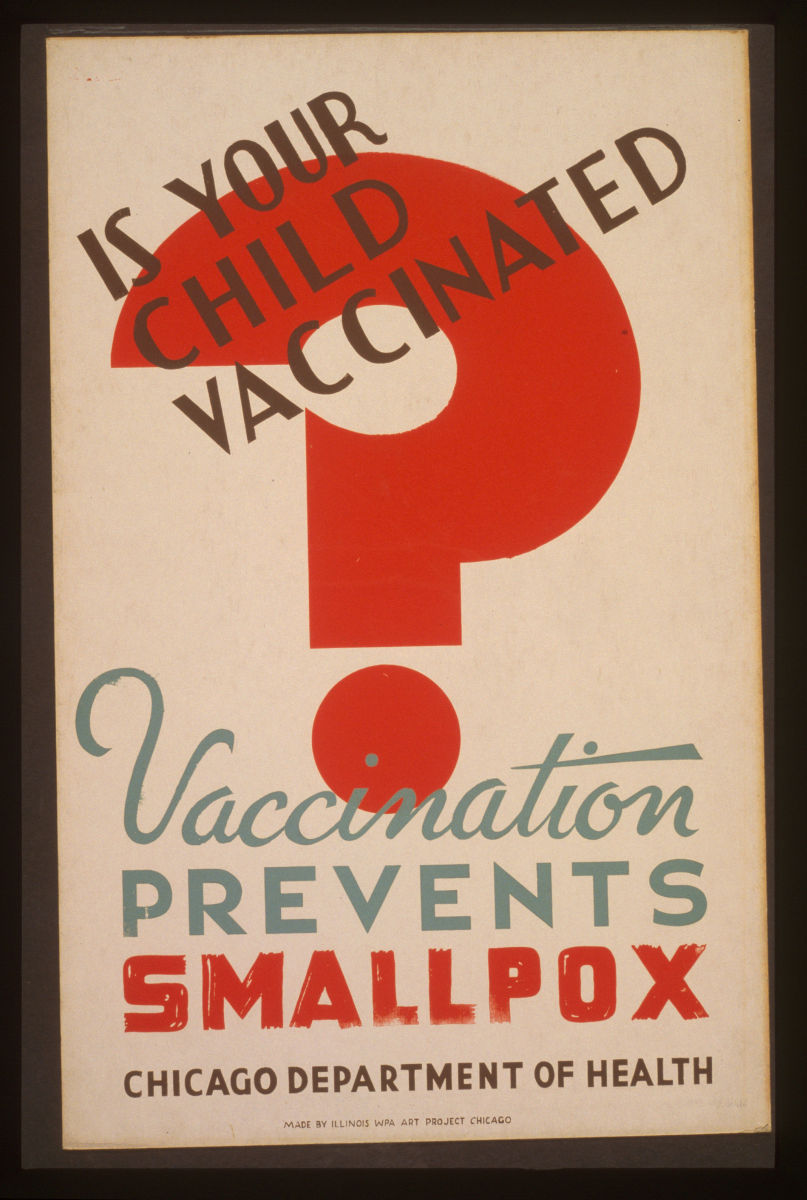· Smallpox is caused by the variola virus, and is spread by direct contact with  infected bodily fluids.
infected bodily fluids.
· The symptoms include fever, aches and the spots or 'pox' that give the illness its name.
· In the past, the disease killed a third of all infected adults, and up to 80% of children. By the end of the eighteenth century, in Europe, this meant the death of 400,000 people each year, including five kings. Many more were left blind.
· While there is no known treatment, vaccines can provide lasting immunity. But using the live smallpox virus as a vaccine was dangerous, as people could become ill and die.
· In 1796, a doctor called Edward Jenner discovered that giving people a dose of cowpox left them with immunity to smallpox. This made the vaccination process much less dangerous, as cowpox was a much milder illness.
· Vaccination was so successful that the number of cases dropped dramatically, and by the 1970s, vaccination was no longer necessary.
· The last known natural case of smallpox was in 1977, but in 1978, a photographer working in a lab became accidentally infected and died,
· In 1979 WHO certified that smallpox had been eradicated, and began a global effort to keep track of the remaining stocks of the virus. By 1983, all known stocks had been destroyed, or brought to one of 2 holding centres- in Atlanta and Russia.
· In 1990, the WHO recommended that these last two known stocks should be destroyed, to prevent accidental release.
· Some scientists, however, argued that they should be kept. They believe we need to understand more about the viruses in order to protect ourselves from possible bioterrorism.
· Another fear is that the virus could re-emerge naturally, perhaps from melting perma-frost. If we no longer had the sample, we would be unable to create new antiviral drugs.
· At the moment, two advisory groups to the WHO disagree about whether the remaining virus should be destroyed, so the decision has again been delayed while a third advisory group is set up to discuss the matter.









Comments
Add a comment